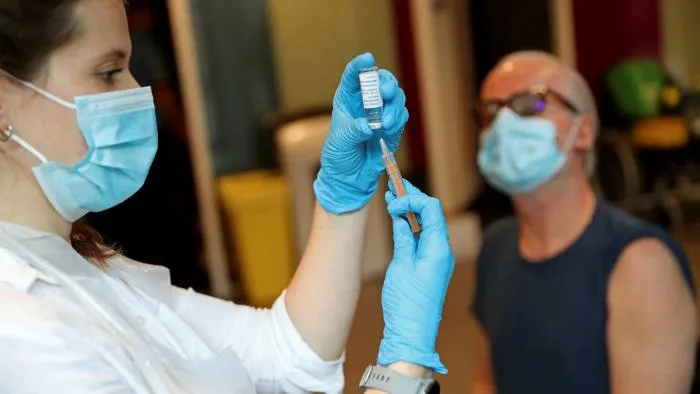
Countries across Europe have suspended the Oxford/AstraZeneca Covid-19 vaccine over concerns the jab may cause blood clots, even though medicines regulators and the World Health Organization say there is no evidence of problems.
Germany, Italy, France, Spain and the Netherlands became the latest countries to pause the rollout of the jab on Monday. Norway, Denmark and Bulgaria suspended their programmes last week.
The suspensions came as the WHO urged nations not to pause Oxford/AstraZeneca inoculation programmes, having said last week there was no sign the problems had been caused by the jab. Boris Johnson, the UK prime minister, said Britain’s medicines regulator saw “no reason to discontinue” use of the vaccine, with Downing Street asserting that the jab was deemed by regulators to be both “safe and effective”.
The European Medicines Agency said it was investigating instances of blood clots and has called an extraordinary meeting for Thursday “to conclude on the information gathered and any further actions that may need to be taken”.
It said it remained of the view that “the benefits of the AstraZeneca vaccine in preventing Covid-19, with its associated risk of hospitalisation and death” outweighed the risks of side effects.
The European suspensions deepen tensions within the EU over the vaccine, after bitter battles with AstraZeneca over delivery shortfalls. The concerns about the jab highlight a divide with countries including the UK and Canada, which continue to use it.
Jens Spahn, Germany’s health minister, described his country’s move as a “precautionary measure” based on a recommendation from the Paul Ehrlich Institute, which advises the government on vaccines.
Spahn said Germany had recorded seven cases of cerebral venous thrombosis (CVT), a type of blood clot, among people who had received the AstraZeneca jab — which he added had so far been given to 1.6m people in the country.
The Italian government said it paused the Oxford/AstraZeneca immunisation after talks between the health ministry and Prime Minister Mario Draghi. France is halting inoculations until Thursday’s verdict from the EMA. President Emmanuel Macron said he hoped the programme could be resumed “quickly if the EMA gives the green light”.
Dutch authorities said 10 cases, including possible thrombosis or embolisms, had been reported by people who received the Oxford/AstraZeneca jab.
Norway said one of three healthcare workers hospitalised with blood clots after taking AstraZeneca’s coronavirus vaccine had died. It paused its use of the AstraZeneca vaccine last week after a 60-year-old died in Denmark with blood clots after receiving the vaccine.
Ireland has suspended use of the jab while Indonesia cited European doubts about the vaccine when it stopped its rollout temporarily, adding that it would await a WHO review.
But Canada has rallied behind the jab. “Our health experts . . . collect data continuously and they assure us that all the vaccines offered in Canada are safe and effective, including those from AstraZeneca,” said Justin Trudeau, the prime minister.
Professor Andrew Pollard, director of the Oxford group that developed the jab, told the BBC there was “very reassuring evidence that there is no increase in a blood clot phenomenon here in the UK, where most of the doses in Europe have been given so far”.
“It’s absolutely critical that we don’t have a problem of not vaccinating people and have the balance of a huge risk, a known risk of Covid, against what appears so far from the data that we’ve got from the regulators — no signal of a problem,” he said.
Dr Phil Bryan, vaccines safety head at the MHRA, said: “We are closely reviewing reports but, given the large number of doses administered, and the frequency at which blood clots can occur naturally, the evidence available does not suggest the vaccine is the cause.”
Francis Collins, director of the National Institutes of Health, the US government medical research agency, said US trial data was being reviewed by independent monitors. If the data were positive, the US could approve the Oxford/AstraZeneca vaccine in about a month, he added.
He said he had not seen data on incidents of thrombosis in Europe but added that he was “pretty reassured” by the decision of European regulators.
It is the second time EU countries have departed from the advice of the bloc’s medicines regulator on the Oxford/AstraZeneca vaccine. Several initially declined to give it to older people, although some are considering changing their stance and offering it to all adults.




















